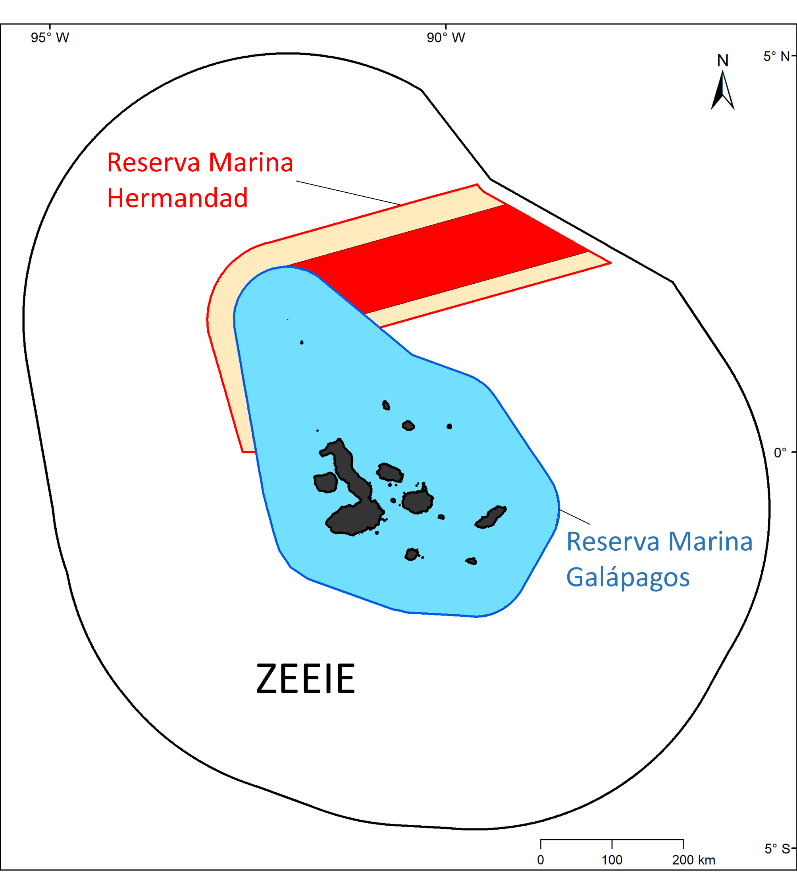New Study Highlights Economic and Environmental Value of Galapagos Waters
Puerto Ayora, Galapagos – May14, 2025 – The Charles Darwin Foundation (CDF), in collaboration with Ecuador's Ministry of Environment, Water, and Ecological Transition (MAATE), the Galapagos National Park Directorate (GNPD), and the Central Bank of Ecuador (BCE), has released an innovative study detailing ecosystem accounts for Ecuador's Insular Exclusive Economic Zone (IEEZ). The research underscores the significant role marine ecosystems play in supporting economic activities and mitigating climate change.
The IEEZ extends 200 nautical miles (approximately 230 miles) beyond the territorial sea of the Galapagos Islands, granting Ecuador exclusive rights over marine resources of immense economic and geopolitical importance. Within this zone are two protected areas: the Galapagos Marine Reserve (GMR) and the Hermandad Marine Reserve (HMR). The study provides a comprehensive assessment of natural capital within the IEEZ, highlighting its direct contributions to Ecuador's economy and biodiversity conservation.
The research employs the methodology of the System of Environmental-Economic Accounting – Ecosystem Accounting (SEEA-EA), traditionally focused on terrestrial ecosystems but now expanding to marine and coastal environments essential for sustainable development. Data from 2014 and 2018 were used, representing a pioneering effort for the region.
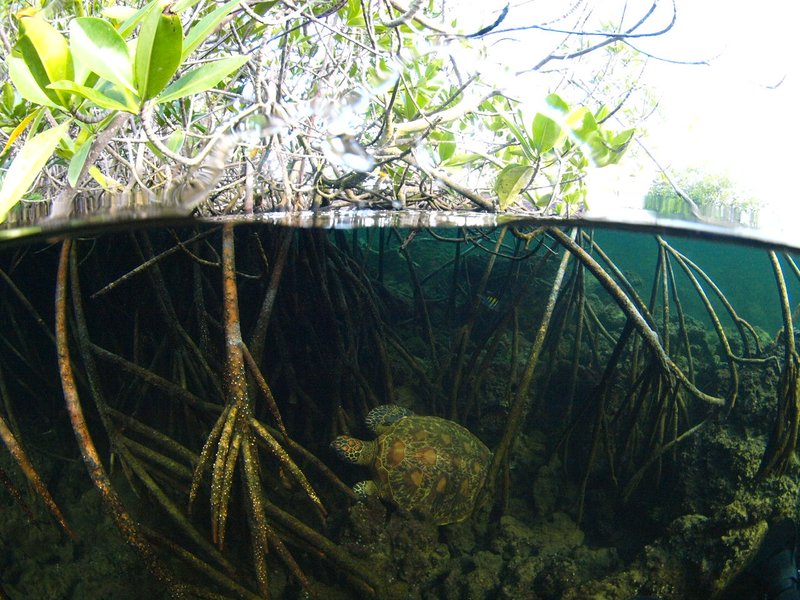
Mangroves
Mangroves within the Galapagos Marine Reserve stored 1,824,240 tons of carbon in 2018, capturing over 600 tons annually. Based on the 2018 carbon market price of $20 per ton, the estimated economic value of the stored carbon amounts to $36.5 million. This ecosystem service significantly contributes to global climate change mitigation, underscoring the critical importance of mangrove conservation in preserving biodiversity and reducing atmospheric carbon.
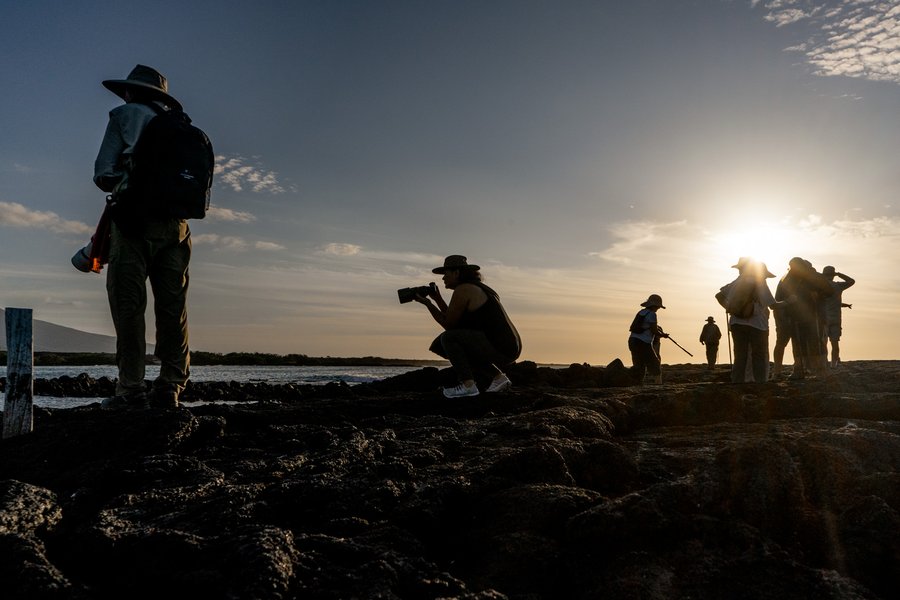
Tourism
Visitor numbers in Galapagos increased by 27% from 2014 to 2018, generating annual revenues exceeding $275 million in 2018 (up from $194 million in 2014). The thriving tourism industry highlights the economic reliance on pristine marine and coastal environments. Sustainable tourism policies and conservation efforts are vital to maintaining this essential economic sector, ensuring resources remain intact for future generations.
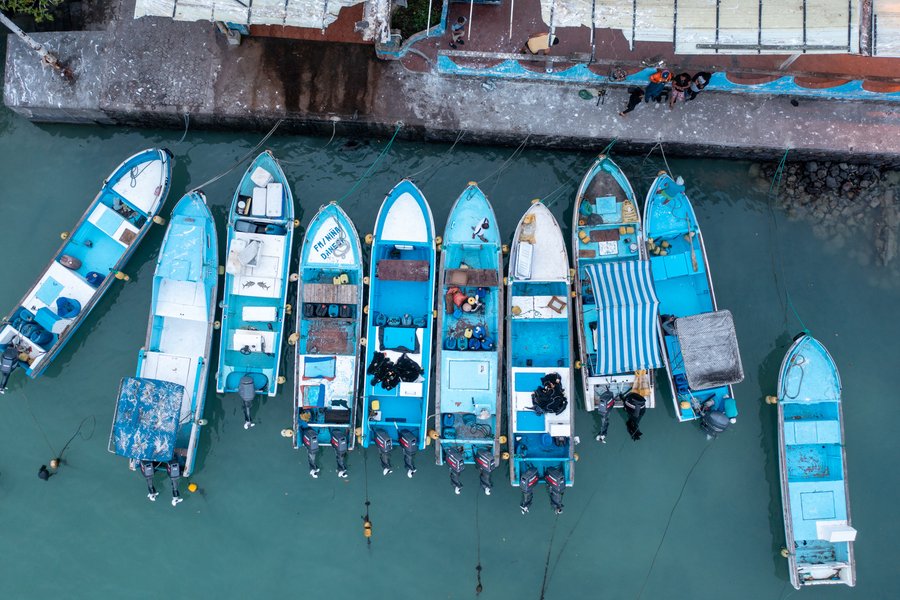
Fishing
Industrial and artisanal fishing within the IEEZ contributed over $110 million annually, primarily driven by tuna, spiny lobster, and sea cucumber, supporting local food security and international markets. Fishing represents a critical livelihood for coastal communities and an important economic engine. Sustainable fishing practices and effective resource management will be crucial to prevent overexploitation and ensure long-term sustainability.
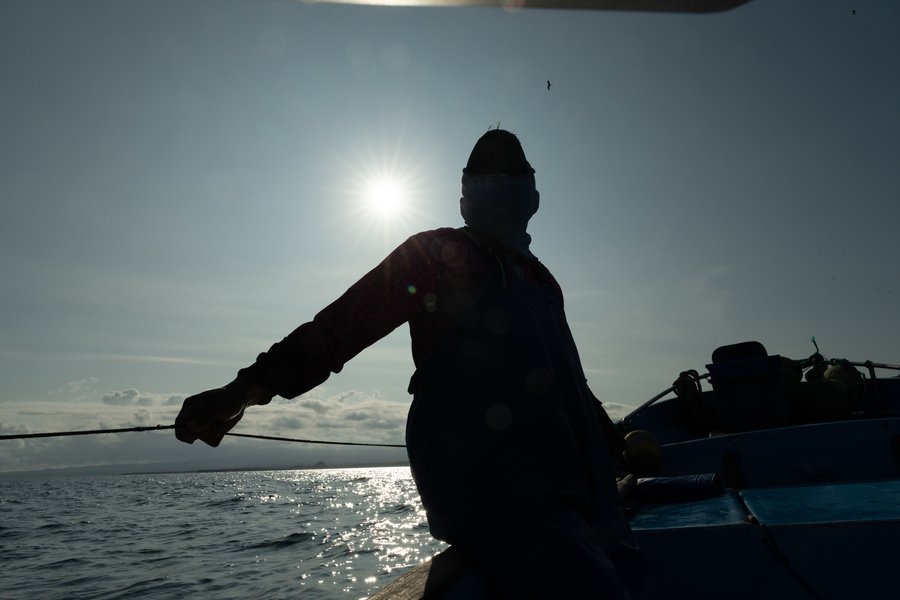
Employment
Economic activities within the IEEZ, including tourism, fishing, and maritime transport, supported over 41,000 jobs, emphasizing their importance to Ecuador's labor market. Employment generated in the IEEZ surpasses the entire population of the Galapagos Islands, largely driven by two key national industries: industrial fishing, accounting for approximately 20% of Ecuador’s total production, and heavy maritime transportation, responsible for over 60% of national maritime transport activities. These industries provide direct employment and stimulate numerous secondary economic activities, highlighting the importance of continued investment in sustainable marine resource management for job security and economic resilience.
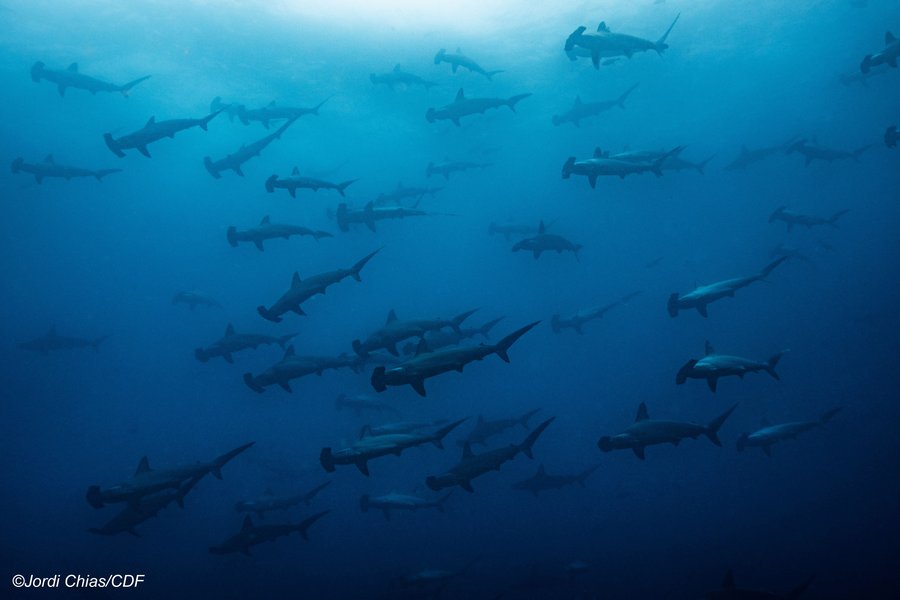
Ecosystem Health Trends
Marine biodiversity indicators have shown slight declines, underscoring the need for more rigorous conservation policies to ensure long-term sustainability. Declining biodiversity, especially in reef ecosystems, raises concerns about overall marine habitat health. Targeted conservation efforts, intensified monitoring, and stricter regulation of human activities are essential to reversing these trends and protecting marine life.
“This study provides the first comprehensive evaluation of how marine ecosystems within the IEEZ directly support Ecuador’s economy and environmental health,” stated César Viteri, co-Principal Investigator of the Sustainable Fisheries program at the Charles Darwin Foundation and co-author of the report. “By quantifying key ecosystem services—like carbon capture in mangroves, fishing revenues, and tourism income—we demonstrate that these natural assets are indispensable for the country’s sustainable development. These data are crucial for informing policies that balance conservation with economic necessities.”
Rakan Zahawi, Executive Director of the Charles Darwin Foundation, added: “Galapagos and its surrounding waters are among the world’s most treasured ecological assets, yet they face increasing threats from climate change, overfishing, and unsustainable human activities. This pioneering report makes a compelling case for urgent action by Ecuador and the global community to protect these unique ecosystems. Ecosystem accounting provides us with tools to integrate nature’s value into decision-making, ensuring economic progress does not come at the expense of environmental degradation. Protecting and valuing our natural capital isn’t a luxury—it's a necessity.”
“As part of this initiative, CDF co-leads the Global Ocean Accounts Partnership (GOAP) alongside Indonesia’s Ministry of Maritime Affairs and Fisheries, promoting global adoption of ocean accounting practices. We've also established the Latin America and Caribbean Community of Practice to encourage regional uptake of ecosystem accounting methods,” Zahawi continued. “These initiatives position Ecuador as a global leader in integrating ecosystem values into economic planning, serving as a benchmark for marine conservation and sustainable development worldwide.”
On behalf of the Minister of Environment of Ecuador, María Cristina Recalde, the Director of Environmental and Water Education and Information for the Ecological Transition, Holger Zambrano, notes: “This document is the result of a collective effort to make evidence-based decisions and ensure a future in harmony with our natural heritage. Ecosystem accounting provides us with the tools to integrate nature into decision-making. Taking action now is urgent.”
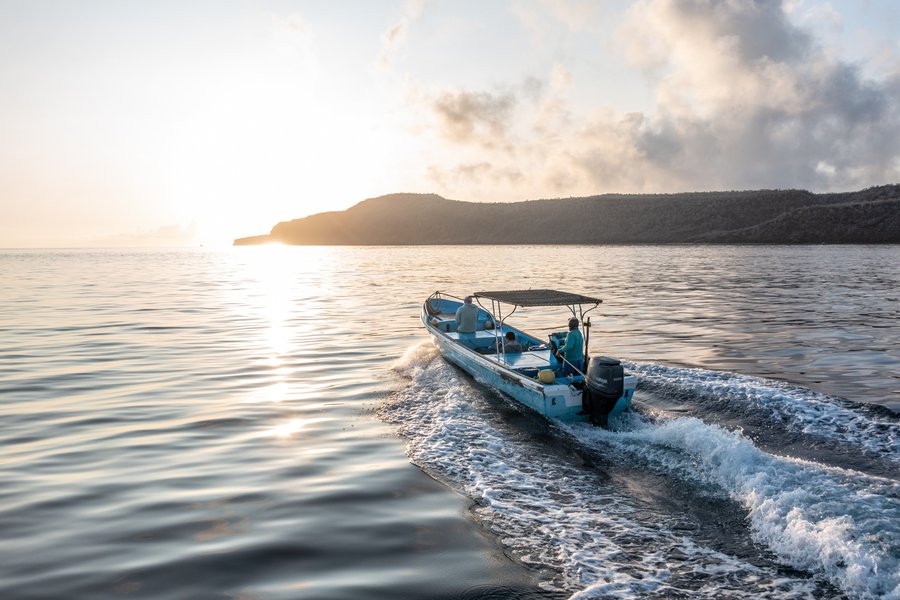
By pioneering this approach within the IEEZ, Ecuador has the opportunity to lead by example in marine conservation and sustainable development, proving that economic prosperity and environmental protection can—and must—go hand in hand.
Notes to editors:
For media enquiries please contact:
Charles Darwin Foundation
Ambre Tanty-Lamothe or Leslie León
comunicacion@fcdarwin.org.ec
About the Charles Darwin Foundation
The Charles Darwin Foundation for the Galápagos Islands (CDF) is an international non-profit organization that has been present in Galápagos since 1959, operating under a special agreement with the Government of Ecuador. Its mission, along with that of its Research Station, is to tackle the greatest threats and challenges facing Galapagos through scientific research and conservation actions, aiming to protect one of the world’s most important natural treasures. Currently, CDF conducts over 25 research and conservation projects and curates more than 135,000 specimens within its Natural History Collections. The foundation's diverse team consists of more than 140 members, primarily Ecuadorian citizens, with over 60% being Galapagos residents. For more information, visit: www.darwinfoundation.org.





